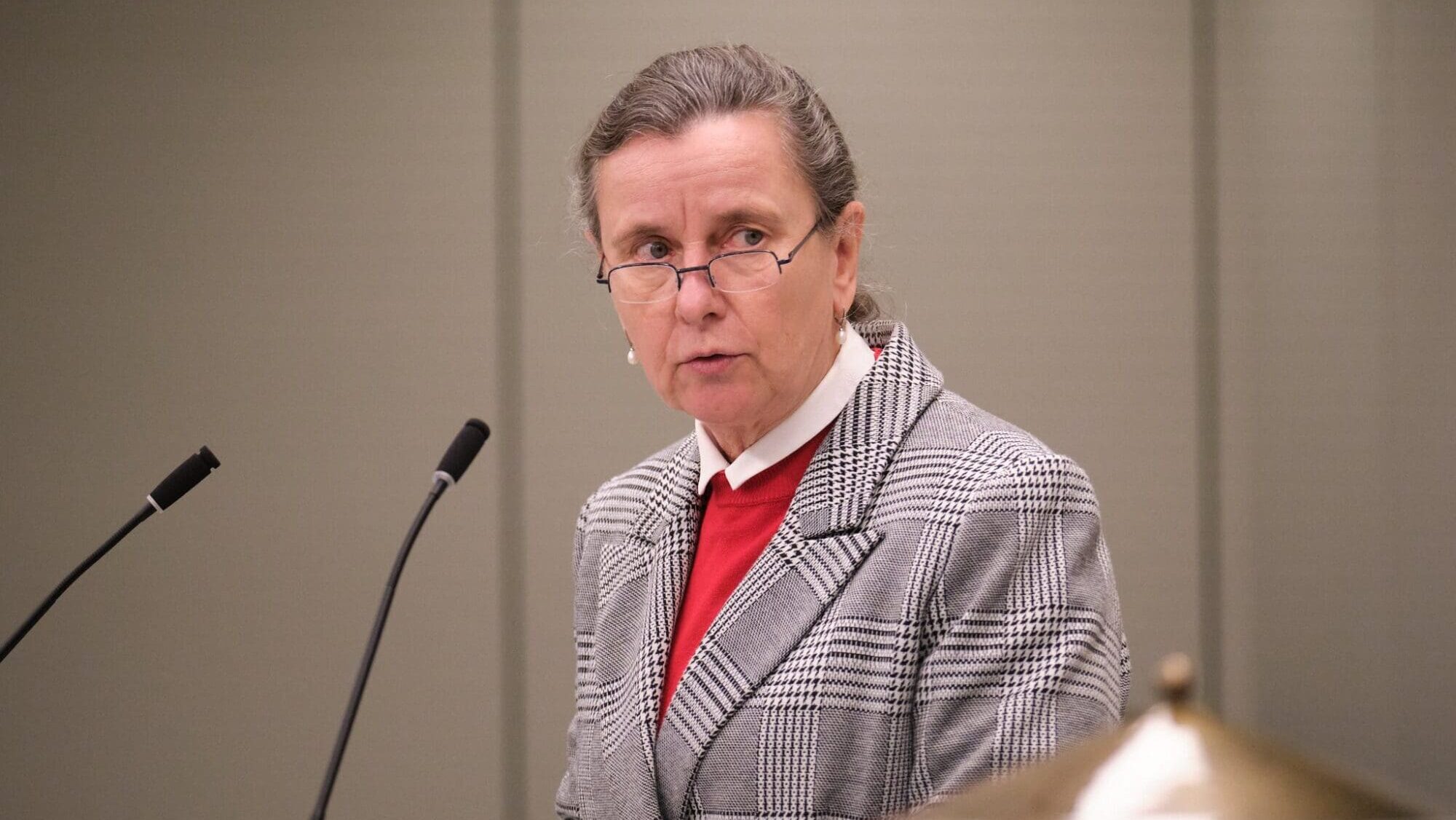
Marjolein Faber
Geert Wilders’ Party for Freedom is encountering some barriers to its goal of delivering the new minister for Migration. Such obstacles go against the Dutch electorate’s clear wishes, as expressed in last November’s national elections, for greater immigration control.
Wilders’ first pick, Party for Freedom (PVV) MP Gigi Markuszower, failed security screening by the Dutch intelligence service (AIVD) last Thursday, forcing Wilders to withdraw Markuszower’s candidacy as both Deputy Prime Minister and Minister of Migration―“in response to the contents of the report.”
Whenever a new Dutch cabinet is being formed, it is routine for the formateur to have several investigations conducted into any candidate members to see if any incriminating matters come to light.
Outgoing Minister Hugo De Jonge confirmed that the AIVD did find incriminating information about the PVV MP. As such, he has been deemed a “risk to the integrity of the national government should he have been able to become a member of government.”
De Jonge added that one must be certain about prospective ministers’ integrity and that state secrets are in good hands with them.
While the AIVD can never disclose what that risk was, De Jonge emphasized that the verdict proved negative, on which basis formateur Richard van Zwol decided “it was better not to [nominate him].”
Wilders’ second pick, the 64-year-old PVV MP Marjolein Faber, proved even more controversial, triggering coalition partners the People’s Party for Freedom and Democracy (VVD) and New Social Contract (NSC).
A hardliner on asylum and migration and skeptic of both the EU and Islam, in 2015 Faber delivered a scathing critique of both:
“The EU loves Islam. Both ideologies like each other because they both have nothing to do with democracy, they both have nothing to do with freedom of speech, and they both want to impose on people a way of life that they define. Islam is subjugation, the EU is subjugation. Like communism, Islam and the EU are an ideology. The players have changed, but the game is still being played, the same way. And all this is sealed with a socialist brotherly kiss.”
In 2020, Faber mentioned ‘omvolking’ (i.e. the demographic replacement of native Europeans by mostly Third-World immigrants, sometimes known as ‘The Great Replacement’, popularized by French philosopher Renaud Camus) on the floors of the Senate.
While establishment media and political parties have invariably portrayed it as a racist conspiracy theory, realists of whatever political persuasion—such as Camus, whose sympathies lie more with the Left—know that pointing out a dwindling native European population and a growing migrant population is merely the repetition of official statistics.
That Friday morning, VVD leader Dilan Yesilgöz said that the PVV MP was “not an uncontroversial candidate” over such statements.
A crisis meeting between the four coalition partners, Van Zwol and prospective Prime Minister Dick Schoof was requested, and started late afternoon on Friday.
After that meeting, Faber was deemed credible by formateur Van Zwol, since she had already passed the AIVD screening. According to him, there was then no reason to withdraw her candidacy.
Shortly following the crisis meeting, Faber announced on X that she “understands” the commotion about statements she made in the past as member of parliament while in the opposition. She stressed that as a member of the new cabinet, she would abide by the coalition agreement and the rule of law.
Er is commotie over mijn uitspraken die ik in het verleden heb gedaan als lid van de oppositie. Ook bij de fracties van VVD en NSC. Ik heb daar begrip voor.Als lid van het kabinet zal ik mij natuurlijk uiten binnen de lijnen van het Hoofdlijnenakkoord en de rechtsstaatverklaring.
— Marjolein Faber PVV (@pvvfaber) June 14, 2024
Van Zwol emphasized that, as a formateur, it was important to maintain “a little peace and order” and “not get upset,” adding that they had taken a “good while to go over things thoroughly.”
Various Dutch media did not embrace that spirit of peace however, as they quickly began campaigning to hurt Faber’s reputation
The most blatant example was perhaps when Johan Derksen, a well-known Dutch talk show host, went as far as comparing Faber to Eva Braun, Adolf Hitler’s wife, on national television last Saturday:
When I see that person [Faber] on my screen, I always imagine myself in a black-and-white movie from the 1950s in which she plays the role of Eva Braun. I think she [Faber] is a terrible woman.”
This tactic, which amounts to a reductio ad hitlerum by proxy, is oft-used to smear outspoken women who hold to rightist beliefs, especially when they support tougher migration policies.
Starting today, the formateur will begin holding interviews with all candidate-ministers. During these, a candidate’s past, as well as paid and unpaid work for business and financial interests will be discussed in detail. Faber’s will be held later this week.
